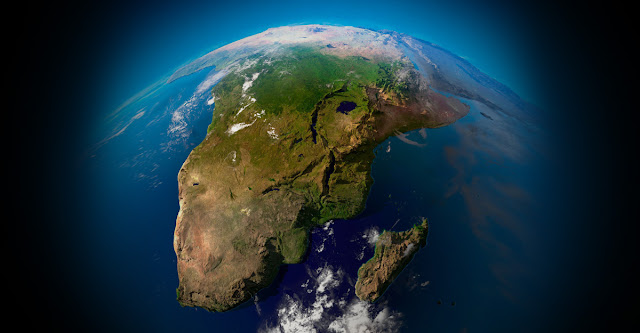Welcome to my blog about water and politics in Africa! In the next few weeks, I will delve into water and politics in the context of development in Africa. However, first I’d like to confront the common misconceptions about the continent of Africa and consider the consequences of these misconceptions, before reflecting on my own motivations and aims for the blog.
When I hear people talk about ‘Africa’, its 54 countries are often conflated into one, with what they know about one place, being generalised across the continent. People imagine one big, barren desert, filled with those suffering from drought and famine. As Binyavanga Wainaina discusses in his article ‘How to Write About Africa’ the diversity of African communities, landscapes, cultures, and climates is largely ignored; they are deemed irrelevant because ‘they’ are all the same, as in, ‘they’ are not like ‘us’.
Since the Live Aid campaign1 in the 1980s, which propagated ideas of African poverty using images of starving and helpless children, people have had a vision of Africa that has been hard to shake. In 2001, the Voluntary Service Overseas (VSO) produced a report on ‘The Live Aid Legacy’, which found that 80% of the British public associated the developing world with famine, disaster and Western aid.
What is the impact of this? Firstly, we must consider how these representations affect diasporic African people. Ademolu (2021) writes about his own experience growing up as a UK Black African, struggling to reconcile the Black suffering he saw on TV, with their ‘shared Blackness’. He condemned the representations shown in the media, citing the impact on the formative experiences of young African diasporic people.
Secondly, these representations contribute to an imaginary in which Africa is ‘suffering’ and can only be saved by ‘Western aid’. Certain institutions continue to be underpinned by colonial discourses which support this notion and associate the African continent with ‘cultural backwardness’ and ‘underdevelopment’. Indeed, Nigerian writer Chimamanda Ngozi Adichie notes in her 2009 TED Talk:
‘If I had not grown up in Nigeria, and if all I knew about Africa were from popular images, I too would think that Africa was a place of beautiful landscapes, beautiful animals, and incomprehensible people, fighting senseless wars, dying of poverty and AIDS, unable to speak for themselves and waiting to be saved by a kind, white foreigner.’
In her TED talk, Adichie explains the ‘danger of a single story’ in leading to biased perceptions. The way we tell a ‘story’ is powerful, and can have profound impacts not just for ourselves, but for how others see the world. So how can we write about Africa? For me, I hope to contribute to what Nigerian writer Chinua Achebe calls ‘a balance of stories’ through choosing words carefully, in consideration of the discourses that underly them. I will seek to read from African academics and understand their perspectives, before trying to present a balance of arguments through analysis of several African case studies and their unique characteristics. I will touch on issues such as conflict and cooperation in water disputes, paradigms of water management, and the urgency for climate justice in Africa.

Comments
Post a Comment